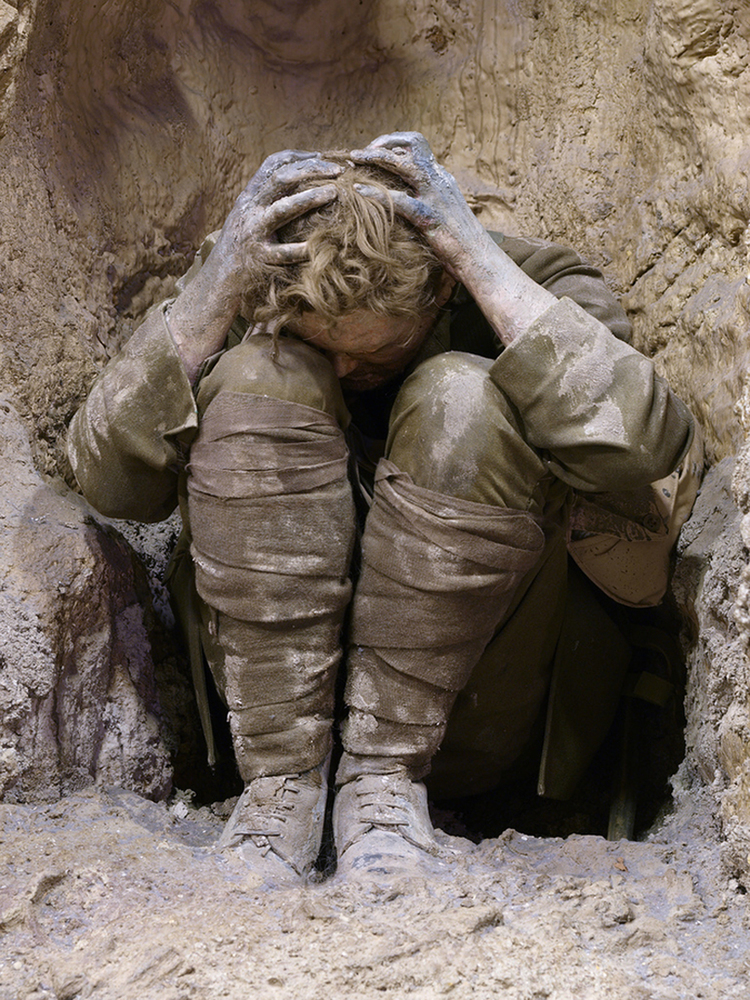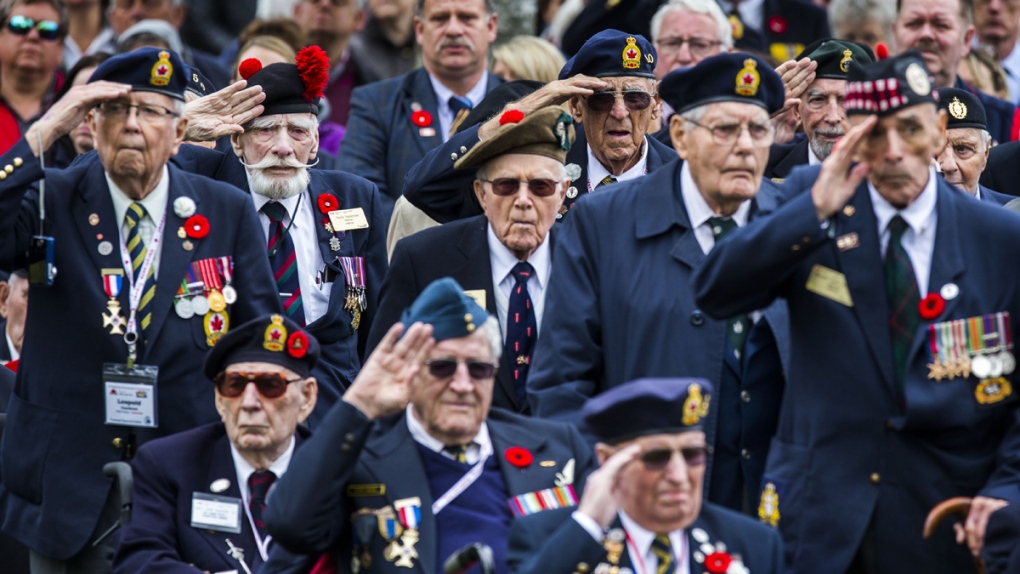The stigma of mental health issues are often not acknowledged when it comes to soldiers in the military.
CHANGES TO MILITARY MENTAL HEALTH NEGATIVITY
The idea surrounding mental health in the military has changed in a positive way since the First World War, when there was very little to no recognition of soldiers’ mental health.
“I would say certainly changes evolved from ideas of shell-shock, which was equated with cowardice, to now PTSD, which is equated with a medical condition in need of support,” said Principal Investigator of the Social Psychiatry Research and Interest Group (SPRING), Dr. Robert Whitley.

An exhibition of a soldier in a trench suffering from shell shock. For thousands of soldiers in the Great War, the fear, paranoia hysterical crying, terrible nightmares, mutism, fatigue, facial tics, and tremors were symptomatic of shell shock.
FAILURE TO ASSIST VETERANS
But to this day, the Canadian military isn’t very successful with the treatment of mental health of its veterans. Currently, about one in five Canadian Veterans have problems with mental health at some point in their lives, according to Veterans Affairs Canada.
According to the National Council for Behavioural Health, in the United States the number of veterans that need mental health treatment but actually receive it ends up being less than half.
AIMING TO PREVENT MENTAL HEALTH ISSUES
The integration back into society after serving is especially difficult for veterans seeking support with their mental health. This is why experts are aiming to integrate preventative measures into active duty training.

Soliders in a doctors office, talking while the medical advisor takes notes.
“I try to frame these things, nervous system regulation, self-care practices, you know, some of the work that we can do to improve mental health—I like to frame them as prevention, as training.” Said Kate Hendricks Thomas, the Assistant Professor at Charleston Southern University.
While the resources currently put in place are helpful, say experts and veterans, there is a lot more that can be done to change the negative tone surrounding veterans’ mental health.


Leave a Reply